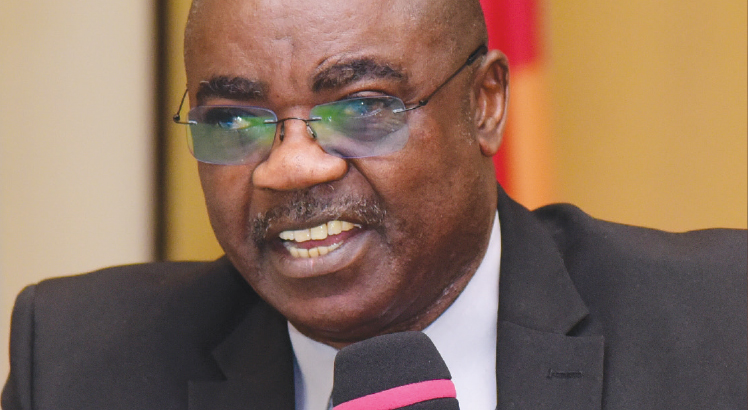Commonwealth adviser trains Principal Secretaries
The Commonwealth, through its Public Sector Governance Division, organised a three-day training for 45 principal secretaries to enhance their leadership and management. The training took place from June 28-30 2022 at Malawi Institute of Management (MIM) in Lilongwe. In this interview, our News Analyst LUCKY MKANDAWIRE engages DR ROGER KORANTENG, Commonwealth’s adviser and head of public sector governance, who led the training, on the training and related issues: Excerpts.

Malawian public service
Q1
What necessitated this training and how would you describe its outcomes?
A1
The Commonwealth Secretariat’s support to member States is demand-driven. This means that support is accorded based on the needs and priorities identified by member countries. In the case of Malawi, the request for training came from the government who wanted to enhance the capacity of its Principal Secretaries to address the ever-growing dynamic challenges of leadership and thus effectively serve their citizens.
Q2
What were the training’s main objectives?
A2
Training is a means of ensuring that the participants’ performance and productivity are at the required level to ensure that there is optimal delivery of public services and achievement of development goals, including the SDGs. The main objectives of the workshop were to enable the participants to reflect on leadership, understand how to enhance people’s performance, and support them to navigate through internal and external shocks, change and disruption. Others were to help build a broader strategic mindset, improve innovation and performance, and ensure resilience and sustainability and also to take a holistic approach to change and institutionalise participatory management and decision-making.
Q3
Leadership and management is a broader topic, what exactly were the key areas that the training covered?
A3
Through the training, we sought to retool the Malawian public service to deliver effective and efficient public service. The workshop aimed at harmonising the understanding of leadership and enhance participants’ knowledge of various critical soft skills required to take public service to the next level. So some of the key areas covered during the workshop were good governance, leadership competencies in today’s civil/public service, picking the ‘Best Fit’ style of leadership and ethics, integrity and professionalism. We also covered performance management, risk management, building effective teams, negotiation skills, leadership in an environment of volatility, uncertainty, complexity and ambiguity (Vuca), motivation and engagement, mentoring and coaching and finally emotional, social and adversity intelligence/quotients.
Q4
How significant is frequent capacity-building training in public service given challenges facing efficient service delivery?
A4
As the saying goes, old thinking cannot effectively tackle new challenges. Therefore, the need for a strong and resilient public service is critical given the evolving nature of the challenges we face, such as the impacts of the Covid-19 pandemic. A key element of building resilience is capacity development of the public service, which should be done regularly. The need for creativity and innovation lies at the heart of the drive to keep on upgrading the skills and knowledge of public servants.
Q5
What did you pick as main obstacles in as far as an effective government performance management system is concerned?
A5
In my experience, obstacles to effective government performance management are not unique to one country, they are universal and must consist of a continuous process of identifying, measuring, and improving the performance of civil servants based on specific goals and priorities of the government. In all the training I have conducted over the years across the Commonwealth, I have noted that civil servants can struggle with a number of challenges including a lack of capacity-building and learning opportunities, unclear direction from government ministers and inadequate resources. I am not going to comment particularly on Malawi’s challenges because, like in every country, there can be a myriad of obstacles and challenges. However, these are surmountable. I believe that in order to implement performance management systems that promote effectiveness, we must think globally and act locally.
Q6
Any further comment on training in Malawi?
A6
It was well received by the Principal Secretaries and I have absolute confidence in their ability and preparedness to rise to the challenges we now face. Training in leadership skills should be undertaken at all levels of the public service in order to sustain a high-performing administration. Retooling and continuous professional development for the Malawian public servants are critical to serving citizens better and the Commonwealth Secretariat stands ready to support the Government of Malawi in its endeavours.





